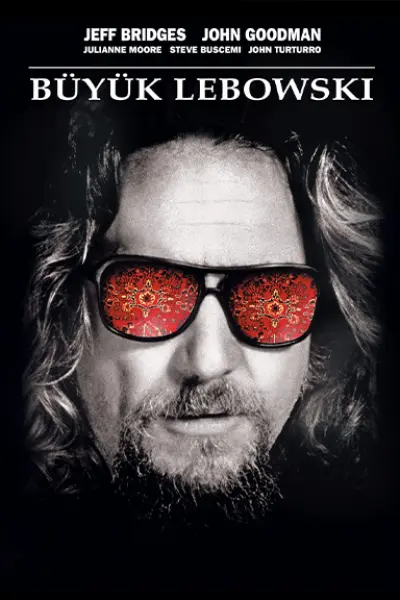
"The Big Lebowski," masterfully directed by the iconic Coen brothers, is a crime comedy that seamlessly weaves through the realms of reality and the utterly absurd. Center stage is Jeffrey "The Dude" Lebowski, an epitome of LA's laid-back lifestyle and a bowling enthusiast. The plot thickens with a hilariously bizarre case of mistaken identity, when The Dude, sharing his name with a wealthy businessman, finds himself roughed up over a debt to a notorious porn mogul. This peculiar twist of fate catapults our easygoing hero into a whirlwind of events, including a murky kidnapping saga and a ransom plot.
Drawing inspiration from the literary genius of Raymond Chandler, the film adopts a narrative style akin to Chandler's, marked by episodic storytelling and a labyrinthine plot that intriguingly takes a backseat to the broader themes at play. It's a narrative structure that favors character exploration over the mystery itself.
At its core, "The Big Lebowski" delves into the theme of mistaken identity, a twist that not only sparks the storyline but also profoundly alters The Dude's life, underlining life's inherent randomness and how a simple coincidence, like a shared name, can radically change one's fate. The film doesn't shy away from politics either, with characters sharply defined by their political leanings, mirroring their deeper identities and approaches to life's conflicts. The Dude, our pacifist protagonist, encounters nihilist kidnappers and a millionaire Lebowski depicted as a corrupt Republican, adding layers to the film's exploration of diverse life philosophies.
Embodying the ethos of 'going with the flow', The Dude remains unflustered amidst chaos, a theme captured perfectly in the Stranger's memorable line, "Sometimes you eat the bear, and sometimes the bear eats you." This laid-back vibe juxtaposes with the characters' relentless pursuit of money, each driven by their own materialistic desires, from making rent to masterminding a kidnapping.
Subtly woven into the narrative is the theme of reproduction, with Maude Lebowski's unique take on motherhood and her pregnancy revelation serving as a beacon of hope and continuity amid the anarchy. Deception plays a crucial role too, as the plot's many twists hinge on a web of lies and manipulations, emphasizing the story's unpredictable and chaotic essence.
Integral to The Dude's character are drugs and alcohol, portrayed not as societal ills but as facets of his relaxed approach to life, adding to the film's quirky allure and his unshakable calm. The film's cultural and aesthetic significance was officially recognized in 2014 when it was chosen for preservation in the U.S. National Film Registry, solidifying its status as a timeless classic.
In essence, "The Big Lebowski" is a rich mosaic of themes and characters, marrying crime comedy with philosophical reflections. It's a story that basks in life's absurdities, affirming that sometimes, it's the journey that's more pivotal than the destination.

